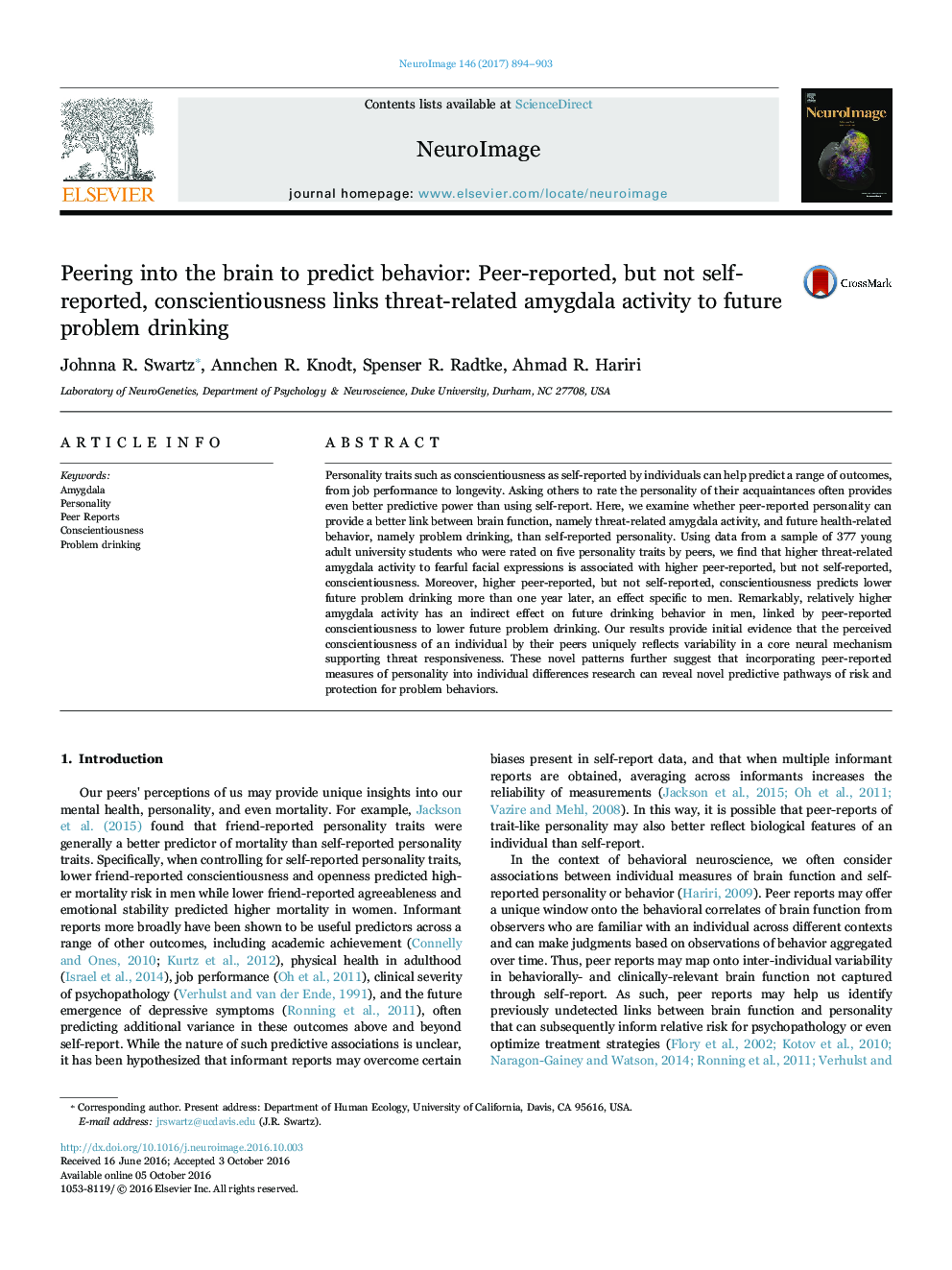| کد مقاله | کد نشریه | سال انتشار | مقاله انگلیسی | نسخه تمام متن |
|---|---|---|---|---|
| 5631392 | 1580864 | 2017 | 10 صفحه PDF | دانلود رایگان |
- Neural correlates of self- and peer-reported personality are examined.
- Higher amygdala activity is associated with peer-reported conscientiousness.
- Peer-reported conscientiousness predicts lower future problem drinking in men.
- Peer report may reveal novel associations between brain, personality, and behavior.
Personality traits such as conscientiousness as self-reported by individuals can help predict a range of outcomes, from job performance to longevity. Asking others to rate the personality of their acquaintances often provides even better predictive power than using self-report. Here, we examine whether peer-reported personality can provide a better link between brain function, namely threat-related amygdala activity, and future health-related behavior, namely problem drinking, than self-reported personality. Using data from a sample of 377 young adult university students who were rated on five personality traits by peers, we find that higher threat-related amygdala activity to fearful facial expressions is associated with higher peer-reported, but not self-reported, conscientiousness. Moreover, higher peer-reported, but not self-reported, conscientiousness predicts lower future problem drinking more than one year later, an effect specific to men. Remarkably, relatively higher amygdala activity has an indirect effect on future drinking behavior in men, linked by peer-reported conscientiousness to lower future problem drinking. Our results provide initial evidence that the perceived conscientiousness of an individual by their peers uniquely reflects variability in a core neural mechanism supporting threat responsiveness. These novel patterns further suggest that incorporating peer-reported measures of personality into individual differences research can reveal novel predictive pathways of risk and protection for problem behaviors.
Journal: NeuroImage - Volume 146, 1 February 2017, Pages 894-903
